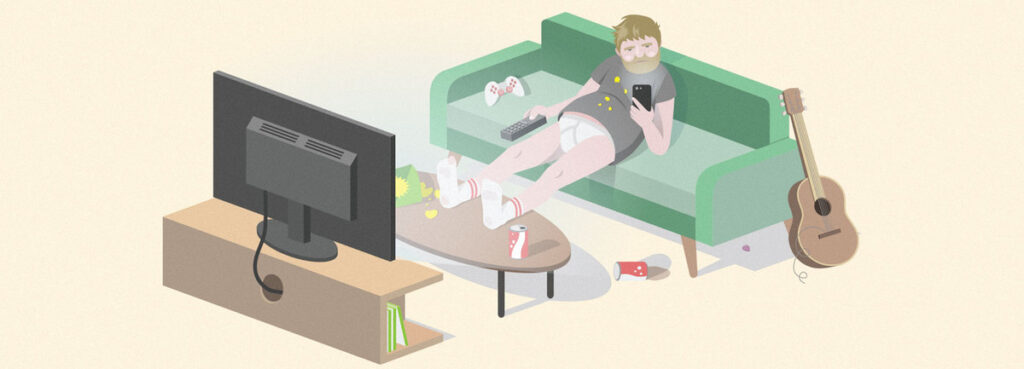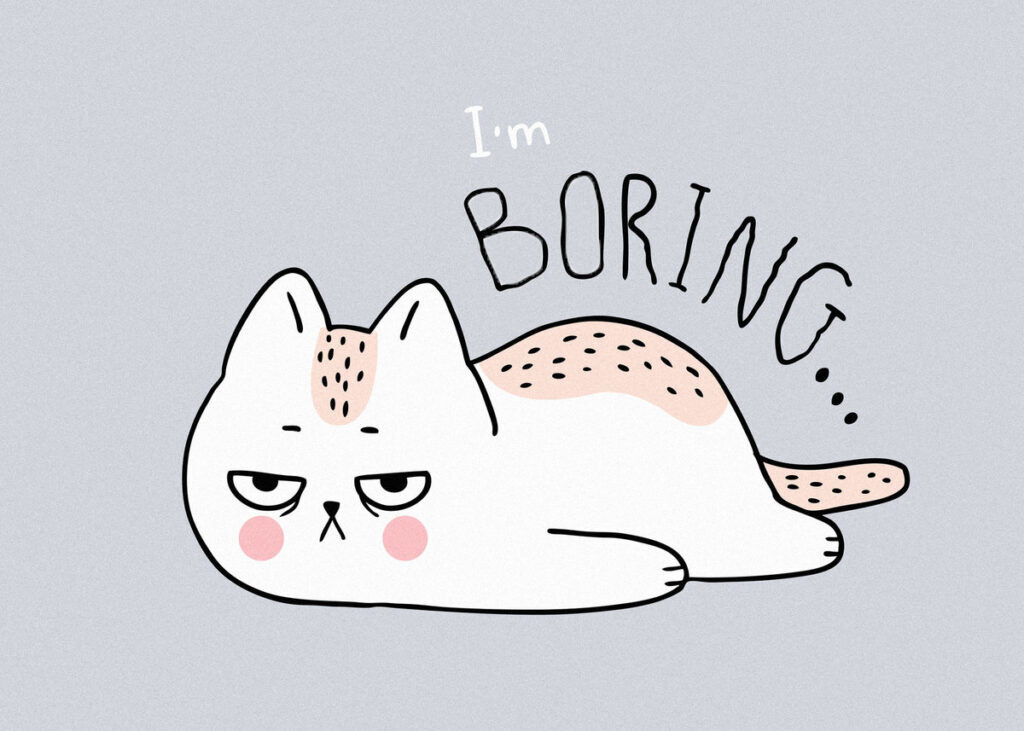We see endless messages online about self-care:
“Self care matters because it helps you stay happy, healthy and resilient. It’s important to make sure you learn how to take good care of your body and mind everyday… blah blah blah…”
But self-care is so BORING!
I’m not talking about a lovely weekend in a spa immersed in various thermal pools. No, I’m talking about everyday self-care:
Getting enough sleep.
Eating well.
Being physically active.
How dull.

Far more interesting is staying up late at night, slumped on the sofa and bingeing on Netflix series while eating chocolate and chips.
Going to bed at a decent time every day – BORING!
Exercising every day – BORING!
Meditating every day – even more BORING!
On a personal note, I stopped drinking alcohol a year ago because I got quite fed up with feeling really rubbish for a few days afterwards. But now when I’m at gatherings with friends (when not restricted by Covid-19), it feels a little odd to be the only one not drinking. And I can’t help feeling that I’m being rather BORING.
I know that eating a great diet every day and having fewer sugary snacks means that my body feels good, my tummy is settled and my skin doesn’t break out in spots….
But, how incredibly BORING!
Not doing self-care sometimes helps me get through particularly demanding workdays. If I’m coming up against deadlines and I have a long list of things that I’ve promised to people, sometimes I feel most productive and efficient when I’m pushing myself through the day, hunched over my desk with very few breaks. I feel able to ignore all distractions – which includes both emails and my own body signals, such as a stiff neck.
Unfortunately, binge-watching Netflix at the weekend means that I’m quite tired on a Monday morning and I really struggle to concentrate.
And pushing myself through a workday without breaks means I’m completely exhausted as a result and a bit irritable and impatient with my kids.
The more good habits I form, the better I feel overall, and the better I feel able to cope with the more challenging days.
I know that I feel better when I change my behaviours: when I sleep better, eat better, move my body every day and give myself mini-breaks from life’s busy-ness. I do actually feel happier, healthier and better able to cope with excess-stress.
Boring but true!
It’s a classic case of head versus heart, isn’t it? Or long-term versus short-term thinking. I know cognitively what’s good for me and why. But what I really want and crave is excitement and delicious-ness! One part of me wants one thing, and another part of me pushes against it.
This is a common human dilemma.
When we try to make changes to what we do and don’t do, we often find this change very hard. Our rational selves (head) are often not in agreement with our emotional selves (heart).
Luckily, we can practise and train ourselves to make more mindful choices about our self-care habits.
The more we do this, the more these actions become our default way of being in the world.
The more we feel the benefits of eating well, sleeping well and being physically active (and maybe even having a daily meditation practice), the easier it is to incorporate these habits into our daily rhythms.
And then we feel so good that we don’t care anymore if we’re boring!
Keep an eye out for more posts about our rational selves vs our emotional selves.

Janine Miller
MSc Psychotherapy, Diploma Psychotherapeutic Counselling
Clinical Director
I am a UK-trained psychotherapist, originally from South Africa and now living in Sweden. I’ve worked in various ways to support people’s emotional wellbeing including play therapy with children in schools, adult therapy (including individual, couples and groups), and managing a therapeutic community for adults with mental health diagnoses. I’m excited to be developing programmes with NISAD.


